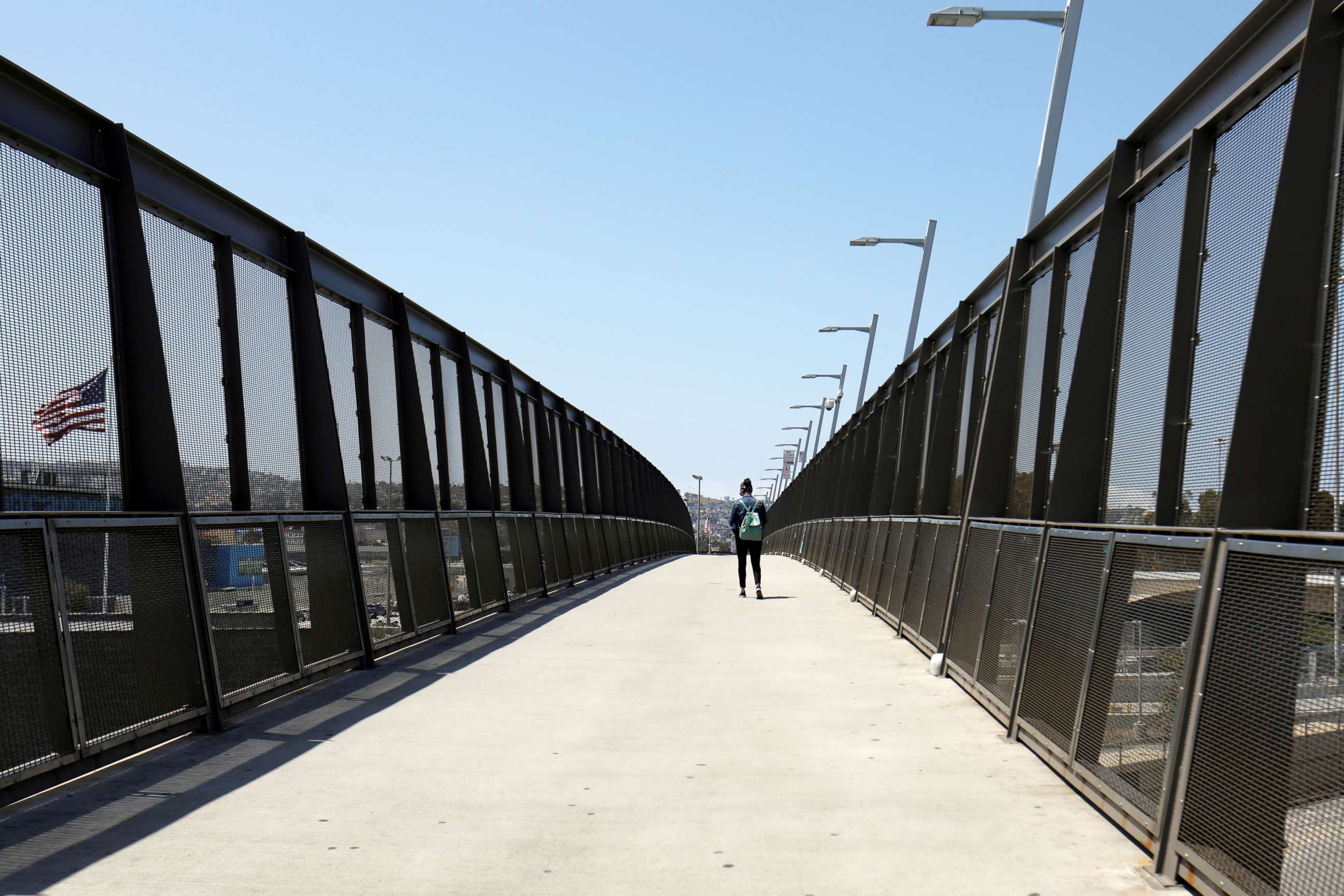California border hospitals see rise in COVID-19 cases coming from Mexico
Despite social distancing, Tijuana's infection rate is on the rise.
While much of the country is seeing less and less COVID-19 cases, the border region of California is still busy dealing with sick patients.
Health officials along the Mexican border told ABC News that ICUs are full and have limited supplies of medicine because of infected people who are entering the U.S., legally, from Mexico.
Tijuana is one of the cities that has been hit the hardest by the novel coronavirus pandemic in Mexico. Despite social distancing measures, cases in Tijuana are still believed to be surging.
"This is not an immigration problem at all, to us," Scripps Health CEO Chris Van Gorder told ABC News. "We think it's American citizens that are coming up, or dual citizens, or those that are authorized to enter the United States because they work in San Diego."

Ambulances often drive patients directly from the border to hospitals in the region.
Although border traffic has been reduced during the outbreak, those who are U.S. citizens and those who cross the border legally for work are still allowed to do so.
Scripps Health has five hospital campuses in the San Diego area. ICUs at its hospitals closest to the border are full and transferring patients to less impacted hospitals in northern sections of San Diego County.
Scripps reported it is stable with personal protective equipment, or PPE, right now, but will need more in the near future. San Diego area hospitals are asking the federal government to prioritize the area, in regard to PPE and medicine to treat COVID-19 patients arriving from Mexico.
"Not only do we see a continual rise in our cases, but we have potential surge risk from Mexico and even Imperial County," Van Gorder said.
He and other hospital leaders sent a letter to United States Department of Homeland Security asking that people crossing the border undergo health checks and be told to stay in Mexico if they are sick. Currently, there are no such checks, and even if a person is sick, her or she is allowed to cross if he or she meets the legal criteria.
"Chula Vista is full. Mercy San Diego is full in our negative pressure isolation rooms," Van Gorder said, explaining that there seems to be no end in sight for California border hospitals amid the pandemic.
Because of the surge in patients, San Diego and Tijuana leaders are forming a cross border working group to monitor COVID-19 cases. The two mayors say this will allow them to track cases as a region, rather than two as cities in two separate countries. San Diego is also working to assist Tijuana in getting personal protective gear and ventilators.




